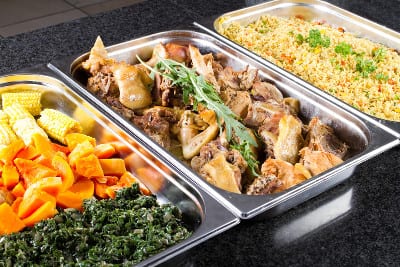Clostridium Perfringens Food Poisoning
Posted on: November 7, 2016 Food Poisoning Lawyer
 Clostridium perfringens, or perfringens food poisoning, is one of the most common causes of foodborne illnesses in the United States. The illness is caused by eating foods contaminated with clostridium perfringens bacteria. Beef, poultry, gravies, and dried or pre-cooked foods are common sources of clostridium perfringens infections. Clostridium perfringens infection often occurs when foods are prepared in large quantities and kept warm for a long time before serving. Outbreaks often happen in institutions, such as hospitals, school cafeterias, prisons, and nursing homes, or at events with catered food.
Clostridium perfringens, or perfringens food poisoning, is one of the most common causes of foodborne illnesses in the United States. The illness is caused by eating foods contaminated with clostridium perfringens bacteria. Beef, poultry, gravies, and dried or pre-cooked foods are common sources of clostridium perfringens infections. Clostridium perfringens infection often occurs when foods are prepared in large quantities and kept warm for a long time before serving. Outbreaks often happen in institutions, such as hospitals, school cafeterias, prisons, and nursing homes, or at events with catered food.
Clostridium perfringens Side Effects
Symptoms of perfringens food poisoning can appear 8-16 hours after consuming the contaminated food and include: Intense abdominal cramps and watery diarrhea. Perfringens food poisoning usually lasts for 24 hours.
How is Clostridium perfringens Treated?
Perfringens food poisoning is treated with oral rehydration. In severe cases, intravenous fluids may need to be utilized to treat dehydration. Antibiotics are not recommended to treat perfringens food poisoning.
Clostridium perfringens Prevention
In order to prevent clostridium perfringens bacteria from contaminating food, food should be cooked thoroughly to prepare and then be kept at temperature that is either warmer than 140°F or cooler than 41°F. Keeping foods at these temperatures help prevent the growth of bacteria. Leftovers should also be fully reheated to at least 165°F before serving as well.
Were You Affected by Clostridium perfringens?
If you or a loved one has experienced Clostridium perfringens food poisoning call the food poisoning lawyers at Feeney Law Firm. Go to our food poisoning page to learn more or call us today for your free consultation.
